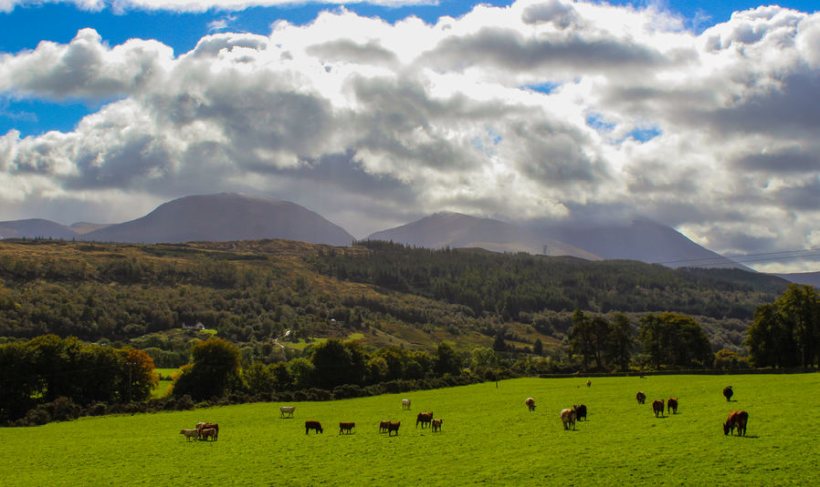
Farm incomes in Scotland fell by more than a third in 2019/20 to its second lowest value over the last eight years, according to the Scottish government.
Average income declined 36% to £25,800 from the high estimate of £40,300 the previous year, its new report estimates.
This is a result of increased costs, decreased revenues and support payments in a number of different areas.
The cost of raw materials to farms increased while the value of outputs decreased, the Scottish government explains.
Income from support payments - which play an important role in farm income - and diversified activities also decreased.
The average Scottish farming business made a loss of around £17,100 without additional support in 2019-20, the report says.
The figures are based on the latest published statistics for the period 2019-20, a period where some farm activity may have been impacted by the pandemic.
Farms which do not receive support payments, such as pigs, poultry and horticulture, are not included in the survey.
The Scottish government said: “Losses to the business were offset mainly by support payments; direct payments to farmers continued to have the largest impact on overall farm income."
"Farms on average made a loss from agricultural activity of £25,500, over twice the loss made in the previous year.
"Agricultural output decreased by five per cent on average. Output value from potatoes and cereals decreased and affected some farm types more than others.
"Input costs also increased by two per cent overall."
The report also says that just over half of farm businesses (52%) could not afford to pay at least the minimum agricultural wage of £8.12 per hour.
Meanwhile, nearly a third (29%) were unable to provide any earnings to unpaid labour from farm income.
